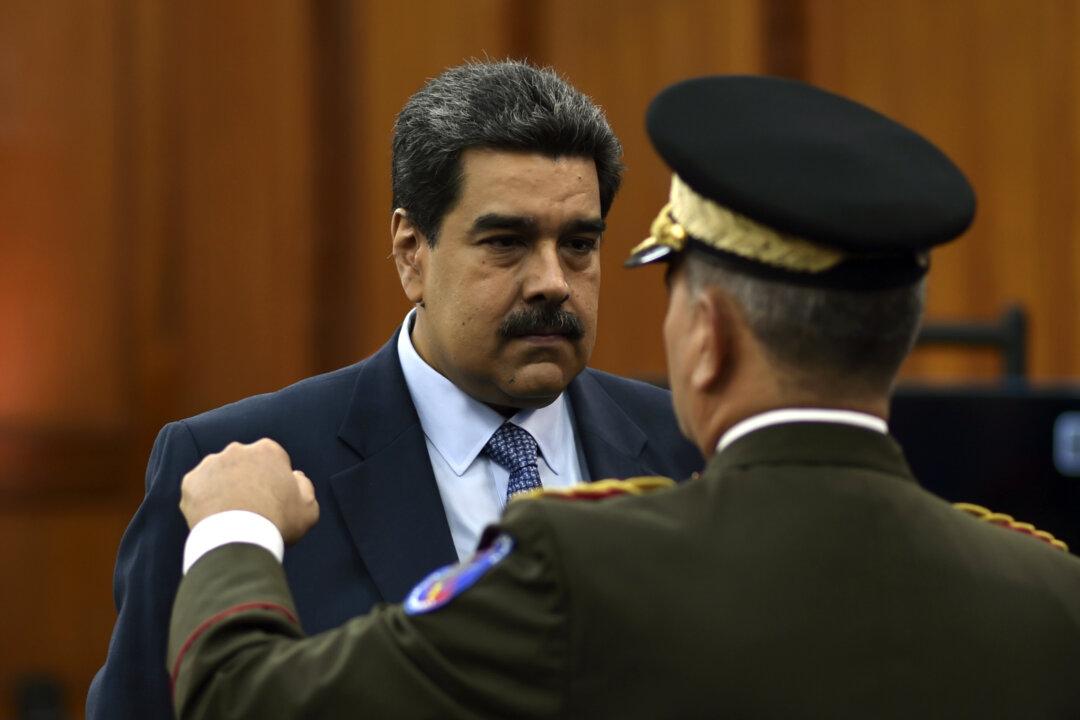Venezuelan dictator Nicolás Maduro said he won’t step down after President Donald Trump recognized opposition leader Juan Guaidó as the interim president on Jan. 23. Meanwhile, the country’s exiled Supreme Court chairman told The Epoch Times that Venezuela’s military should “fulfill their duty” and detain Maduro.
Speaking at a rally outside the Miraflores presidential palace in Caracas on Jan. 23, Maduro told supporters, “We are defending the right to the very existence of our Bolivarian republic,” and said they should resist what he described as a coup attempt.





